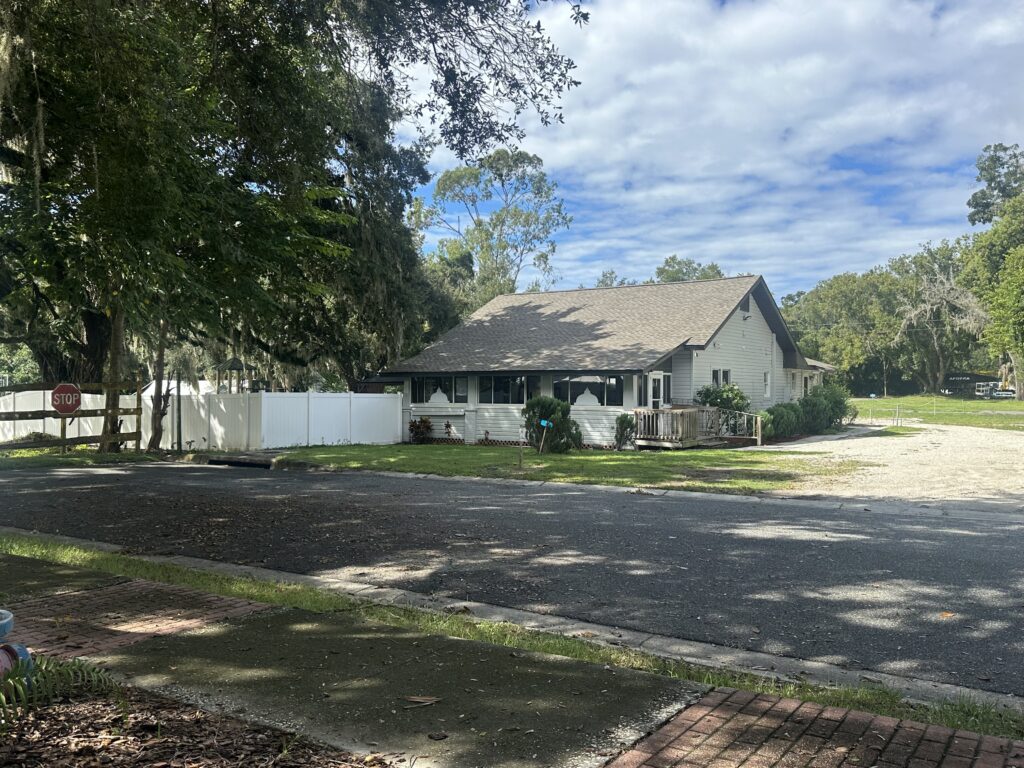
Teresa Sargeant
Key Points
The Planning Commission voted unanimously on Tuesday to grant a special exception for the construction of a 6,436-square-foot downtown Apopka mosque.
The mosque is proposed for an estimated 2-acre tract at 458 Oakland Ave., where an existing single-story house of worship, the Muslim Community Center of Apopka (MCCA), has been in operation for many years, according to the Oct. 14 Planning Commission staff report.
The property’s zoning category is mixed-use downtown, and the project applicant says there is an intent to keep the existing one-story building, according to city planner Amer Hamza.
The Oct. 14 Planning Commission staff report mentions that the city Land Development Code (LDC) requires a special exception permit for a place of worship in the mixed-use downtown zoning district.
The Planning Commission often recommends approval for the City Council to evaluate, but it’s up to the council to pass applications. In the case of special exceptions, the Planning Commission has the authority to approve, deny, or approve them with conditions. An applicant may appeal the Planning Commission’s decision to the City Council.
Conversation between the Planning Commission and city attorney Andrew Hand ensued about ex parte communication — which is official communication outside of a public meeting —and whether seeing comments on social media about the new mosque is considered ex parte communication.
“I saw some talk about it [the mosque] on social media, but I didn’t respond to it when I read what their concerns were,” member Robert Ryan told Hand. “Is that part of something I’m supposed to report?”
According to Hand, reading concerns on social media isn’t necessarily ex parte communication. However, it becomes so if the member directly engages with commenters or gives an opinion on the topic prior to the meeting.
Discussions like those on social media about quasi-judicial proceedings are allowed but should be disclosed for transparency to assess any possible prejudice, Hand explained.
Member Howard Washington, who said he understood what the other members were referring to, said he briefly read the social media comments about the proposed new mosque. However, what truly matters is whether the application meets the city criteria for getting the special exception, he said.
“All we’re doing tonight is to approve the special exception because they want to construct a place of worship, which has been there all along anyway on its property,” Washington said. “All this dialog about social media and what you’re talking about, it’s immaterial. So, I say we just focus on the issue.”
Ryan told Washington he agreed with him but was only asking if he had to disclose what he read on social media, even though he never responded.
Member Eric Mock said Hamza should have reworded the way he said “to develop a place of worship” because a place of worship already exists on the subject property.
“Now it implies that there’s no place of worship there,” Mock said. “So you could say, ‘Adding to, creating a new, additional place of worship.’”
Mock also asked whether other places of worship within the MCCA had special exception permits. He recommended grandfathering in such language in the future.
Other places of worship surrounding the MCCA have been in existence for decades before the city’s current land development code was adopted in 2019, which required special exceptions for places of worship in the downtown, according to city planner Bobby Howell.
Howell clarified to Mock that the current MCCA received no special exception or a business tax receipt, fire inspection, or building inspection. Now with the proposed new mosque, the applicant approached the city and asked for a special exception.
Chairman William Gusler said he agreed with Washington that the Planning Commission’s job is to decide on granting the special exception based on the paperwork before them.
“If there’s a push back on it, where are the people?” Gusler asked. “In my mind, if it was really a problem, or that special exception was going to cause a problem or people were very much against it, then there would be someone in the audience speaking on that matter.”
Hamza explained in the beginning of the application that the applicant must hold a community meeting with property owners who are within 300 feet of the subject project, which includes notifying the owners in advance.
A community meeting for neighbors about the new mosque was scheduled for July 19, but no one attended, according to a July 21 letter from the 458 Oakland Ave. worship center to the city of Apopka.
“According to the evidence and the community meeting letter, the meeting was held, but nobody showed up,” Hamza said.
“Exactly,” Gusler responded.
Suggested Articles
No related articles found.



